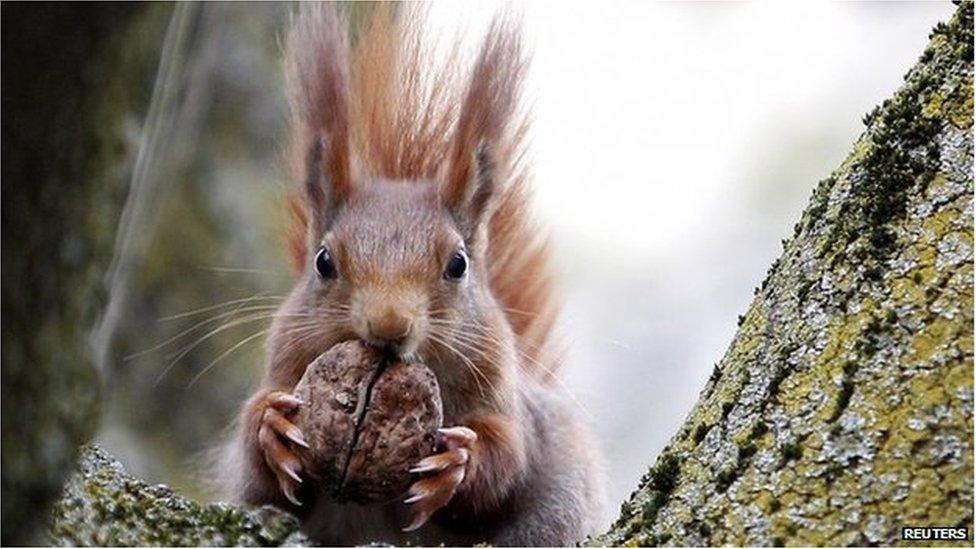Farmer defends tree-felling amid squirrel concerns
- Published
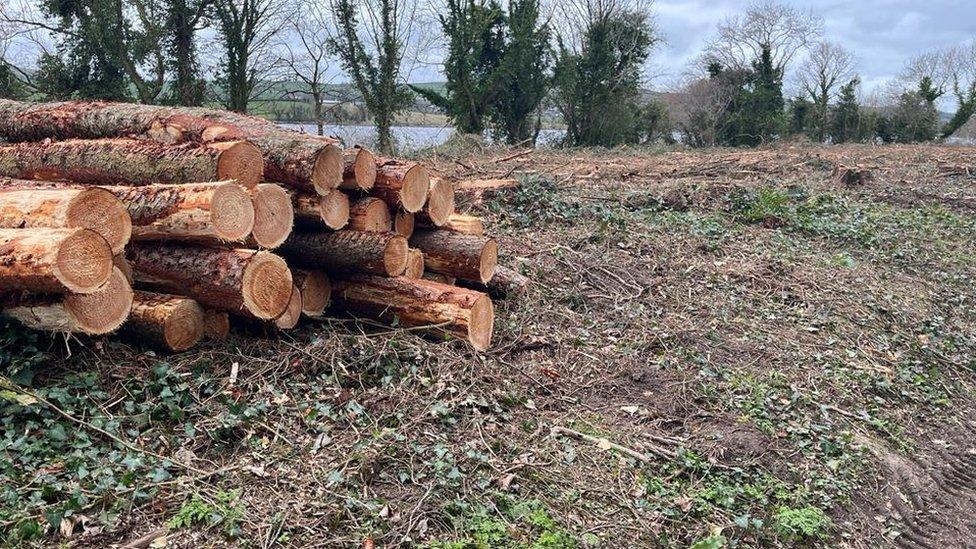
Ten acres of trees have been cleared in an area known locally as 'out the line'
A farmer has defended felling thousands of trees on the banks of Londonderry's River Foyle amid criticism from a red squirrel conservation group.
Tim McCaul said the sitka spruce trees were planted in 1995 as a production crop and are being replanted.
But the North West Red Squirrel Group said their loss could have a serious impact on the squirrels' habitat.
The area is one of the city's "really good pockets" of red squirrels, the group said.
The 10 acre spread of trees was planted by Mr McCaul's father on the family farm at Balloughry, close to Derry's border with Donegal, in an area many local people refer to as "out the line".
Red squirrels, he added, had reappeared in the area around 15 years ago.
Mr McCaul said due diligence had been carried out before contractors cut down the trees.
"The contractor will do a pre-assessment to see if they will find any red squirrels' dreys. They haven't found them - that is not to say they are not here, but they haven't found any," he continued.
"We are very aware the red squirrel is a sort of protected species that we want to try keep in the neighbourhood. You have to balance that against the fact this is a production crop".
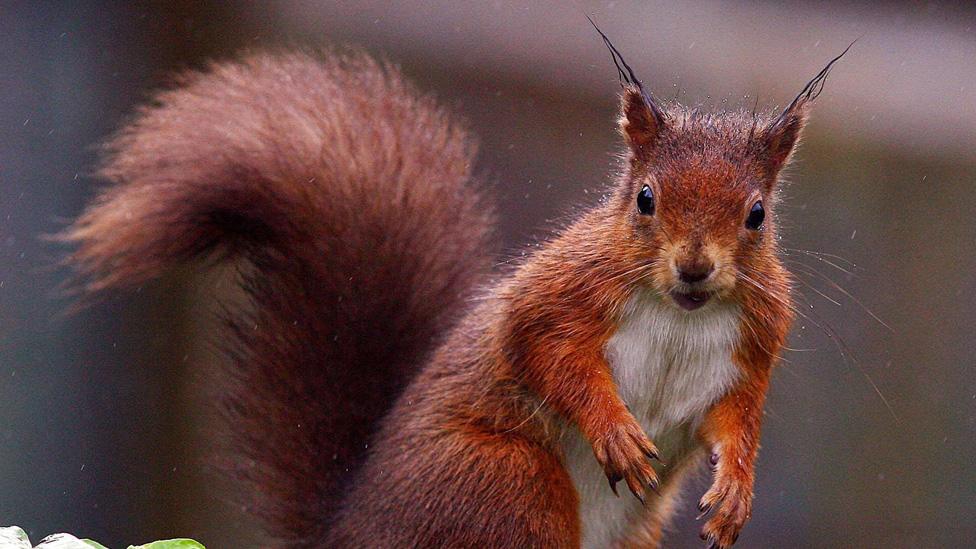
Red squirrel numbers have been of concern to conservationists for a number of years.
"Landowners have to accept that they have to look after the nature on their land," Pam Hardeman of the red squirrel group told BBC Radio Foyle's Breakfast Show.
"We need to protect them, they are going to die out, there will be none left. Pine trees are ideal habitat for them."
She said a survey of squirrel numbers now needs to be carried out after the removal of the trees.
Mr McCaul said he can understand "how people would be a bit upset to see this".
"But it is part of business," he added.
The trees will now be used for to make things like fencing and garden furniture, he explained.
"We have to accept this if we are going to use wood rather than plastics, this will be a common occurrence in the farming landscape."
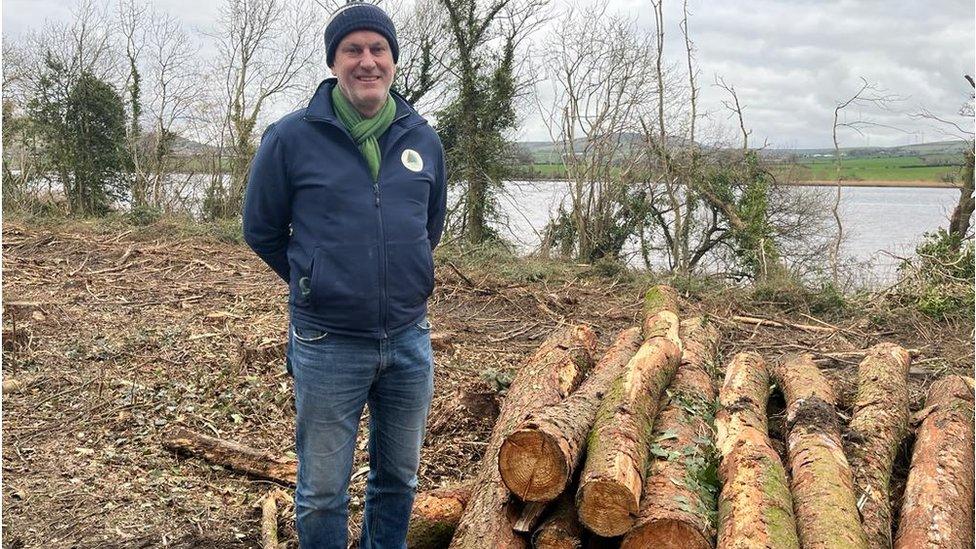
Mr McCaul said the trees will be replaced and thousands more have already been planted
The area is to be replanted and the trees allowed to grow over the next 30 years, he said.
A further 6,500 new trees have also been planted on the farm.
Red squirrel numbers have been of concern to conservationists for a number of years.
The native reds must compete for food and habitat with grey squirrels, introduced in the 19th century from north America.
These can also carry squirrelpox, a virus that does not harm the grey carrying the virus but is deadly to reds.
Related topics
- Published26 January 2019

- Published16 February 2018
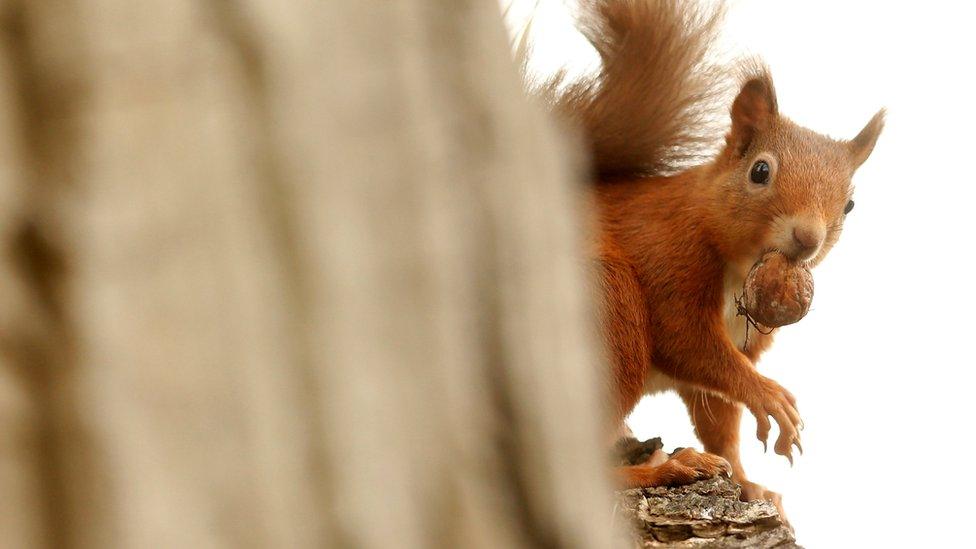
- Published8 May 2018
